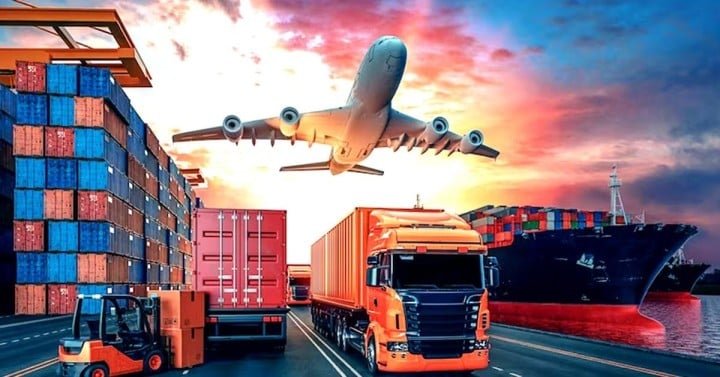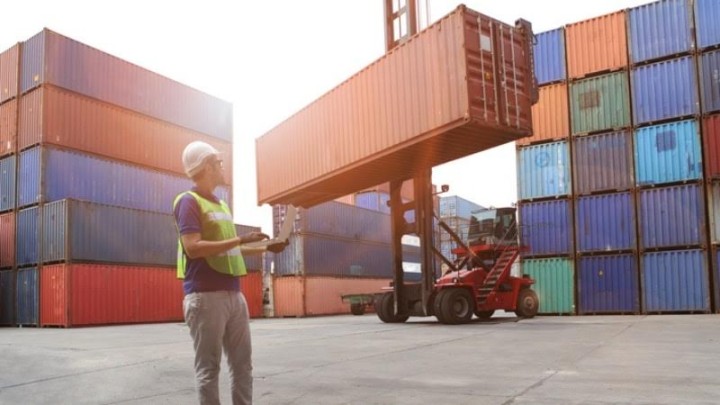
Cargo insurance is a vital part of any trucking business. Ensuring a smooth shipment from the origin to the destination is the major thing that makes your trucking business a reliable one.
However, the cargo in transit is open to damages due to unpredictable scenarios on roads. Risks like theft, explosion, riots, vandalism, collisions, etc. can obstruct your trucking operations. But if such accidents happen during hauling valuable cargo, or any kind of hazardous shipment, how will you save your trucking business or what is the plan B for you?
Experiencing anything like this is such a nightmare for any transportation business. You can’t control such accidents, but you can prepare yourself to get the loss incurred in such cases. By opting for adequate cargo insurance, you can give yourself a financial space that helps you to cope with significant monetary losses after any kind of accident.
Let’s understand more about this insurance!
What is Cargo Insurance?
Cargo Insurance or Motor Truck Cargo Legal Liability Insurance covers the losses to the commodities the trucker is transporting. The transporters are responsible for the cargo under their control until it is in their possession.
From the bill of lading to loading and unloading the cargo, the carriers are responsible to ensure the safety of the cargo. Cargo insurance policies are written based on actual commodities being hauled.
Opting for cargo protection before the cargo is damaged is a prerequisite step for transportation businesses to run smoothly. But what types of risks are covered in cargo insurance?
What types of risks does cargo insurance cover?
Cargo insurance covers either all types of risks or the mentioned risks in your policy. All the perils that lead to loss of shipment except the given exclusions are covered.
The premium of your policy depends on the cargo to be hauled. The most general types of risks that such type of policies protects the insured from:
- Vandalism
- Lightning
- Riot
- Theft
- Explosion
- Fire
For example, due to heavy wind, your truck overturns and the cargo gets damaged or destroyed. Your insurance provider will compensate for the financial losses you would bear in the accident.
All such perils are covered in the cargo insurance policy. However, if you take sufficient cargo coverage, you can get protection against:
-
Shipment Liability
If your truck gets collided with another vehicle and the cargo gets damaged, you will get compensation for it.
-
Refrigeration Breakdown
If your truck’s refrigeration lapses due to any mechanical failure and you suffer cargo loss, then this policy will give you compensation for freight loss.
-
Damage Cost
This insurance coverage will protect the insured if the cargo gets damaged due to fire, theft, collisions, equipment failure, or water damage.
-
Removal Expenditure
If accidentally, the shipment gets on the road due to any accident, the insurer will pay for the cleanup, debris removal, or any kind of cargo handling charges.
-
Lawsuit Expenses
If any of the clients sue you after the cargo is damaged in an accident, your insurance provider will cover all the expenses incurred in lawsuits or settlements.
-
Undelivered Cargo
If the receiver claims that they have received the wrong or damaged or less freight than the actual one, this policy will cover your back. The insurer will pay for all the charges that your trucking business is liable to pay. You don’t need to take the burden of all this if you have a sufficiently needed cargo policy.
What is not covered in the cargo insurance?
Cargo insurance pays for all the risks mentioned above to your shipment, but this policy excludes some of the perils that might happen to your during the hauling, which are:
-
Nuclear Hazard
If a fire, explosion, damage, or loss is done by a nuclear blast, then all such things are not covered under this policy. Unless you have opted for this risk in your purchased policy.
-
Shipment Seized by Authorities
If your cargo suffered any damage or loss due to any Government body, you can’t get the amount for the loss. For example, if the government body is trying to prevent the fire from spreading in the area and your truck’s cargo is damaged in between, you can’t get the loss incurred. However, if you include such risks in your policy at the time of purchasing it, you can cover this as well.
-
War Situation
If you suffer any shipment damage or loss in any kind of war going on or any military action, you can’t get what you have lost for your cargo.
-
Incorrect Packaging
If the goods to be hauled get damaged in between due to improper packaging or mishandling, the insurer will not cover such losses.
-
Equipment Breakdown
If any of the truck equipment gets damaged due to natural deterioration, and there is any loss or damage to the shipment due to the same, the insurance provider will not cover this for you.
-
Criminal Actions
Shipment damages happening because of any criminal activity or negligence will not get covered under the cargo insurance policy.
Who can have cargo insurance?
Your transportation company will be required to have cargo insurance if you have:
- Dump trucker
- Box-truck driver
- Flatbeds driver
- Refrigerated trucks
- Cargo vans driver
Having this coverage is not mandated by law. However, all those truckers who transport any sort of goods should have such type of protection plan for their vehicle. This will ensure smooth hauling of the cargo and indirectly smoothly run your transportation business.
If you operate any type of trucking business, like if you are an owner-operator working under a permanent lease or operating your authority, having a motor truck cargo policy under your owner-operator insurance plan is a mandatory thing to save the expenses for the long run.
How to claim cargo insurance?
Cargo insurance works based on clauses outlined in the insurance plan. The main objective of the policy is to cover the losses because of the incidence specified in the clauses. After paying the premium, the insured can claim for the damage and losses during transit.
After submitting the claim, it is reviewed and the viability of the incident is checked by the claim agent or adjuster. If the damages done are covered under clauses of the policy, the applicant will receive the premium either by cheque or bank payment as per the limit insured.
There is some information about the cargo shipment that you should reclaim. Like:
-
Inventory number
The insurance provider gives this number and is stated in the inventory list. You can ask for it if not received before.
-
Item description
It includes all the details of the cargo that the shipper can recollect. Some of the included ones are weight, dimensions, accessories, etc.
-
Item’s date of purchase
It includes the manufacturing dates of the hauling goods. But if you haven’t such dates, you can provide some estimated ones. Like how old the time is or guess the date of purchase.
-
Item’s location
It includes the location of the cargo before packaging and sending it to the shipment.
-
Claim amount
If the insurance amount includes only the damage cost, then you should mention the cost of repairs to the cargo. And if the claim is for any kind of loss, you should specify the cost of the items in the inventory.
-
Original and replacement cost
The original cost is to be given accurately and the price related to it should be found to determine the replacement cost.
What are the required documents when you have to make a claim?
When you want to claim your cargo, you should have the following documents:
- Transportation documents include all the details of cargo movement like carrier and shipper details, quantity, etc. This can be a bill of lading, truck bill, etc.
- Proof of the delivery for the recipient also works to take the cargo claim sometimes. The information on the delivery documents can be treated as proof of delivery or any damage done to the cargo.
- Statement of the claim that clearly defines the details of losses, the damaged goods, and the extent of it. It includes all the details of the items and circumstances of the claim.
- Value verification document that works as supporting proof for the damaged goods to take the claim. Like, commercial invoices, bills of sale, etc.
Apart from the given documents, one can need more documents to take the claim as per companies policies, and the clauses of the policy.
Summing Up
As the most reliable shipping companies buy insurance policies not only to protect themselves but also for their customers. Cargo insurance is vital for those trucking companies that need to haul different goods daily. It covers what your truck transport from one place to another. Investing in this coverage will not only offer a smooth trucking function but also give you great mental peace.
Detrimental accidents occur when you least expect them, so if you don’t want to end up experiencing huge financial loss, take this cover today!
We hope you found this blog post on What is Cargo Insurance and how to claim for it? useful. Be sure to check out our post on Know About Auto Transport Insurance for more great tips!
Have Experience in the Moving Industry? Want an Additional Income Stream? Work With All Around Moving!
Working with us will enable you to earn money. Click here to learn more.






